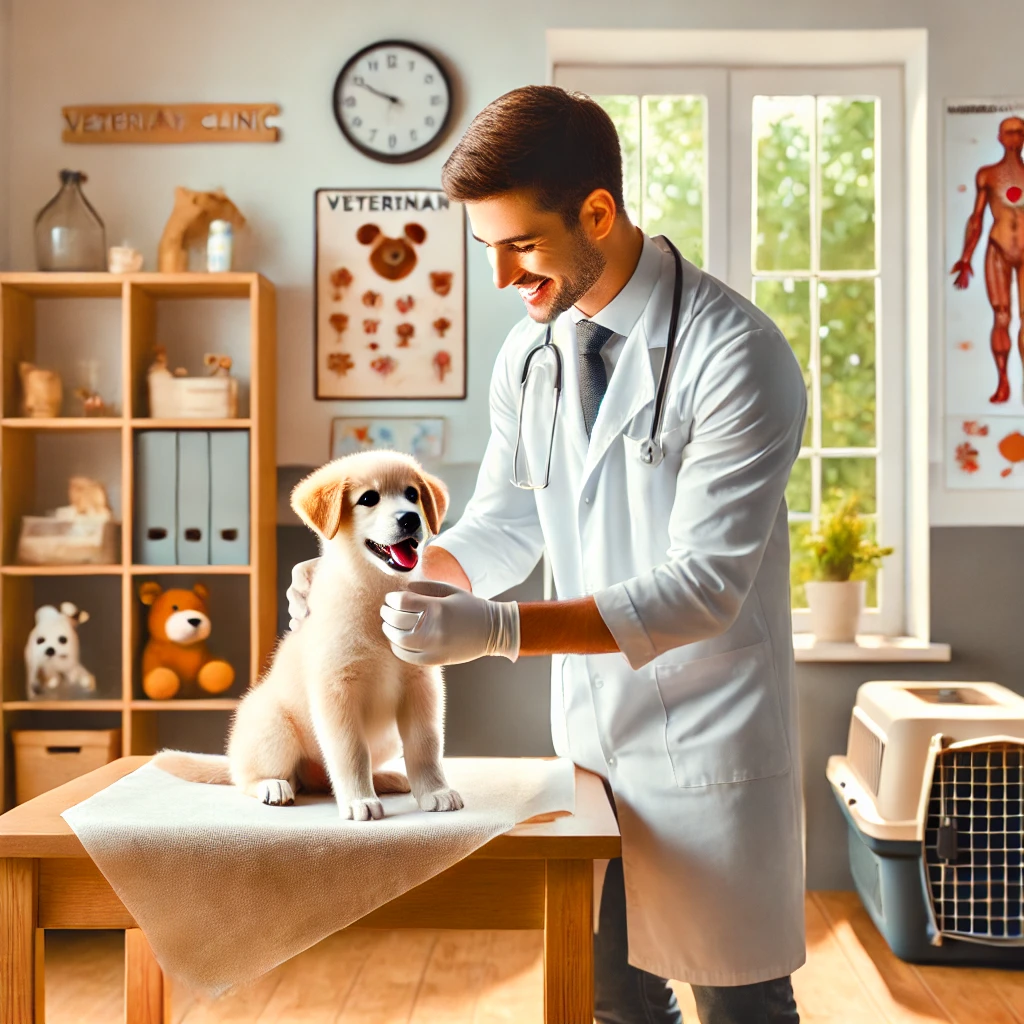Regular health care for your pet is not just an act of love, it’s a crucial step to ensuring your furry friend’s long and happy life. Annual preventive examinations and vaccinations are essential steps in maintaining your pet’s health and preventing serious illnesses. This not only saves time and money in the long run, but also helps prevent diseases that can threaten both animals and family members.
1. The First Visit – Foundation of Health
Your pet’s first visit to the veterinarian is a key moment that sets the tone for its future care. Typically, it occurs at the age of 2–2.5 weeks for puppies or kittens. In some cases, especially when cosmetic procedures are required (such as tail or ear docking for certain service dog breeds), the examination may be needed within the first few days of life.
During the first examination, the veterinarian will thoroughly assess the health of your pet:
- Weighing. Weight control helps assess whether the pet is developing correctly.
- Measuring body temperature. This is one of the first indicators of potential health issues.
- Checking skin, fur, and mucous membranes. This helps detect possible infections, metabolic problems, or allergies.
- Examining internal organs. The vet checks the internal organs to see if the puppy or kitten is developing properly.
2. Importance of Preventive Care
Vaccinations and antiparasitic treatments are essential parts of caring for your pet's health. It’s important to remember that many diseases, such as rabies, can be transmitted from animals to humans. This means that your pet’s health is directly related to the safety of your family.
Vaccinations protect not only your pet but also help prevent the spread of diseases among other animals. For instance, rabies, canine distemper, and parvovirus are diseases that can spread rapidly, especially when animals frequently interact with each other.
3. How to Prepare for the First Examination
The first visit to the vet can be stressful not only for the pet but also for the owner. To ensure the visit is smooth and productive, it's important to prepare in advance. Here are a few helpful tips:
- Write down your questions. Prepare a list of questions you want to ask the vet to make sure nothing is forgotten during the appointment.
- Reduce stress. Speak with the vet about the need for calming medications for your pet before the visit.
- Acclimate your pet to the carrier. Start getting your pet used to the carrier ahead of time, so it becomes a comfortable space.
- Don’t feed your pet before the examination. It’s best to perform tests on an empty stomach for more accurate results.
4. Regularity of Visits
Young animals require more frequent check-ups during their first year of life. The frequency of visits depends on their age and health condition.
- Animals under 1 year. Check-ups should be conducted every few months, depending on the vaccination schedule.
- Pets older than 1 year. One visit per year is enough for maintaining health.
- Pets older than 7 years. Senior pets require more frequent monitoring, at least twice a year.
Conclusion
Annual preventive examinations and vaccinations are the foundation of your pet’s health. Regular visits to the veterinarian help detect problems early and significantly improve their quality of life.
